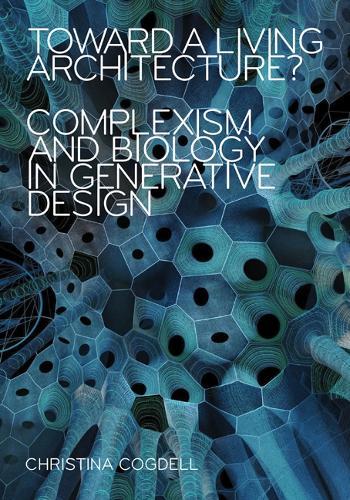
Toward a Living Architecture: Complexism and Biology in Generative Design
(Hardback)
Available Formats
Publishing Details
Toward a Living Architecture: Complexism and Biology in Generative Design
By (Author) Christina Cogdell
University of Minnesota Press
University of Minnesota Press
9th April 2019
United States
Classifications
General
Non Fiction
720.47
Physical Properties
Hardback
296
Width 178mm, Height 254mm, Spine 38mm
Description
Toward a Living Architecture examines the emerging field of generative architecture and its nexus with computation, biology, and complexity. Based on Christina Cogdell's field research in architecture studios and biological labs, this book critiques generative architecture by evaluating its scientific rhetoric and disjunction from actual scientific theory and practice, definitively explaining the role of the natural sciences within contemporary architecture.
Reviews
"Christina Cogdell's soberly scholarly book shows that high-tech evolutionary or generative design is environmentally unsustainable, and that many (fortunately, not all) of today's computational bio-designers are selling, or buying, fake science. Who is to blame for this colossal, and possibly ominous, waste of intelligence and resources Cogdell has one prime culprit in mind."Mario Carpo, University College London
"Toward a Living Architecture is a timely meditation into the hype and hope of the fantasy of generative architecturea field in which biological metaphors are taken literally and the complexities of living systems are brushed away in favor of simplistic illusions of control. Christina Cogdell is a phenomenal researcher who does not shy away from engaging in deep and experiential investigative field work in diverse settings; delving into scientific labs, studios, and knowledge systems, she presents a clear and reasoned argument for the need for a more nuanced and rigorous integration of the life science and architecture than the model currently presented by generative architecture discourse."Oron Catts, University of Western Australia
Author Bio
Christina Cogdell is professor of design and department chair at the University of California, Davis. She is author of Eugenic Design: Streamlining America in the 1930s, winner of the Edelstein Prize for the History of Technology.
